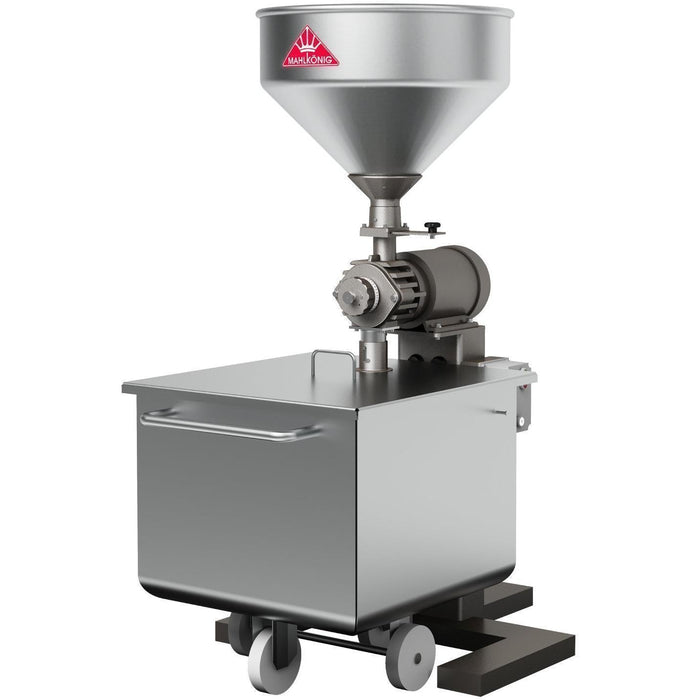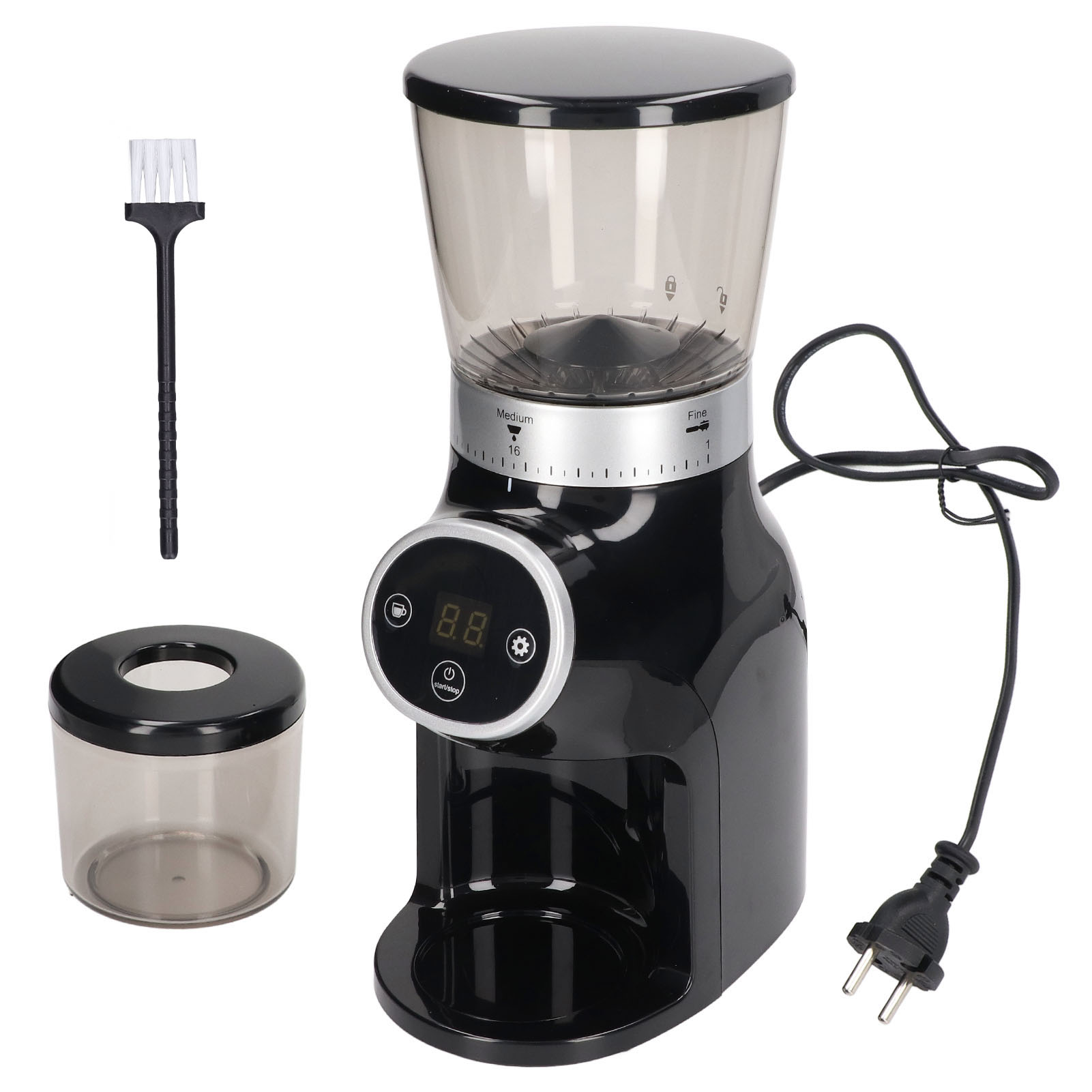Industrial Coffee Grinder Selection Guide for Professional Baristas
Industrial Coffee Grinder Selection Guide for Professional Baristas
Blog Article
Industrial Coffee Mill Guide: Increase Efficiency and Quality
In the competitive landscape of coffee production, selecting the ideal industrial coffee grinder plays a pivotal function in boosting both effectiveness and product quality. Understanding the nuances of numerous mill types and vital attributes-- such as adjustable grind setups and robust building-- can dramatically affect the final flavor account of the coffee.
Understanding Mill Types
When picking a commercial coffee mill, recognizing the various types readily available is crucial for enhancing both taste extraction and operational performance. The 2 key types of grinders are blade mills and burr grinders.

Ultimately, selecting the right sort of grinder is important to maintaining quality and performance in coffee production, making it imperative for businesses to purchase premium burr mills for optimum outcomes.
Key Features to Take Into Consideration
Selecting a commercial coffee grinder requires mindful factor to consider of several crucial functions that can considerably affect both efficiency and the total coffee experience. One of the main elements to evaluate is the grinding mechanism. Burr grinders are usually liked over blade grinders, as they provide a regular grind dimension, which is crucial for optimum removal and taste.
An additional vital attribute is the grinder's capacity. Depending on the volume of coffee you need to procedure, choose a design that can handle your requirements without giving up rate or quality. In addition, think about the grind settings provided. A versatile mill with numerous settings allows you to tailor the work dimension to various brewing techniques, improving the coffee's flavor profile.
The construction material additionally plays a duty in longevity and maintenance. Stainless steel elements usually use longevity and are less complicated to clean, which is crucial for preserving hygiene requirements. Assess the mill's sound degree, particularly in a hectic coffee shop or production atmosphere, where too much sound can be disruptive. Purchasing a mill that stabilizes these functions can considerably boost both operational performance and the high quality of the coffee offered.
Optimizing Grinding Refine
To achieve the very best cause coffee prep work, enhancing the grinding procedure is crucial. The grind size significantly affects extraction, flavor, and overall quality of the made coffee. Various developing methods call for details work dimensions; as an example, espresso demands a fine work, while French press necessitates a crude appearance. Understanding the relationship in between grind dimension and brewing technique is the very first step in optimization.


In addition, keeping an eye on the grinding speed can enhance the procedure. Slower grinding frequently creates less heat, maintaining delicate flavors and scents. Conversely, much faster grinding may generate excessive warm, adversely influencing the coffee's quality.
Upkeep and Care Tips
Appropriate maintenance and care of commercial coffee mills are vital for guaranteeing optimal performance and durability. Normal cleaning is the structure of upkeep; deposit accumulation can impact taste and grinding effectiveness. It is advisable to cleanse the mill after each usage, wiping down the outside and eliminating any kind of coffee premises from the burrs.
Furthermore, check the grinding burrs for damage. Plain burrs can endanger work uniformity, so they must be replaced as necessary. Industrial Coffee Grinder. Regularly adjusting the mill is likewise critical, as this maintains the desired work size for various developing methods
Lubrication of relocating parts need to be carried out according to the producer's requirements, as this lowers friction and extends the life of the tools. It is important to utilize food-grade lubes to make sure security and compliance with wellness regulations.
Finally, keep the grinder in a steady and completely dry environment to protect against rust and rust. By sticking to these upkeep and care tips, operators can enhance the performance of their industrial coffee grinders while ensuring high-grade result and prolonged functional life.
Return on Financial Investment Evaluation
Evaluating the return on investment (ROI) for industrial coffee grinders is essential for services looking for to maximize their coffee manufacturing abilities. A detailed ROI analysis helps figure out the monetary feasibility of buying premium grinders, permitting image source companies to consider the preliminary costs versus possible gains.
To conduct a comprehensive ROI analysis, organizations ought to take into consideration numerous vital factors. First, analyze the purchase rate of the grinder, consisting of installment and any type of needed modifications to existing infrastructure. Next off, calculate functional prices, including energy consumption, maintenance expenditures, and labor effectiveness enhancements. High-performance mills typically cause minimized grinding time and boosted throughput, which can substantially boost productivity.
Additionally, think about the influence on product top quality. Industrial Coffee Grinder. Superior mills produce a more consistent grind size, which can improve taste profiles and consumer satisfaction, inevitably driving sales. By Learn More enhancing the quality of the last item, services can warrant greater pricing, leading to increased income
Final Thought
In recap, an industrial coffee mill plays an essential role in enhancing both effectiveness and item quality within coffee manufacturing. Eventually, the strategic financial investment in a reliable mill adds considerably to improved earnings and competition in the coffee industry.
In the competitive landscape of coffee manufacturing, selecting the ideal commercial coffee mill plays a critical function in enhancing both efficiency and product high quality. The two main kinds of grinders are blade grinders and burr grinders. Within the burr mill category, there are flat burr grinders and conelike burr mills, each with its advantages. Burr grinders are typically chosen over blade grinders, as they give a consistent work dimension, which is crucial for ideal removal and taste.
In recap, an industrial coffee grinder plays a critical function in enhancing both efficiency and product high quality within coffee manufacturing.
Report this page